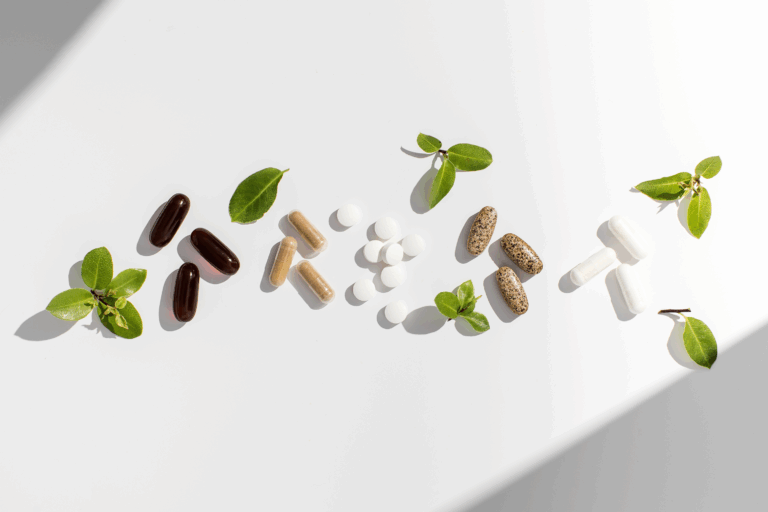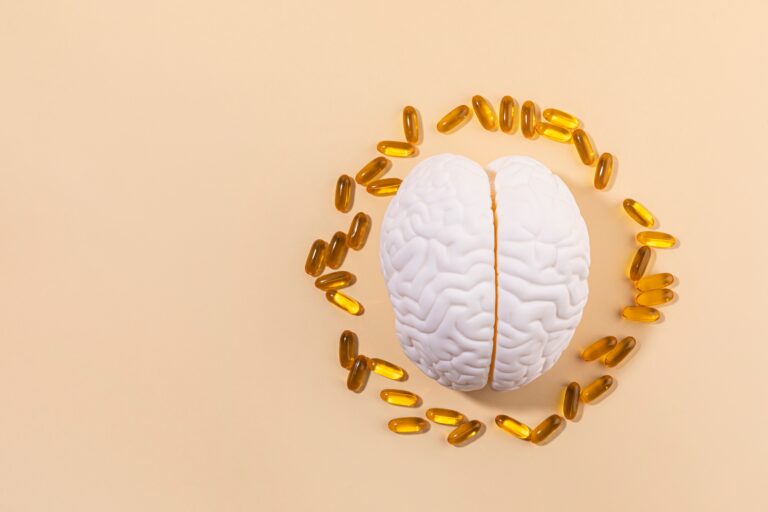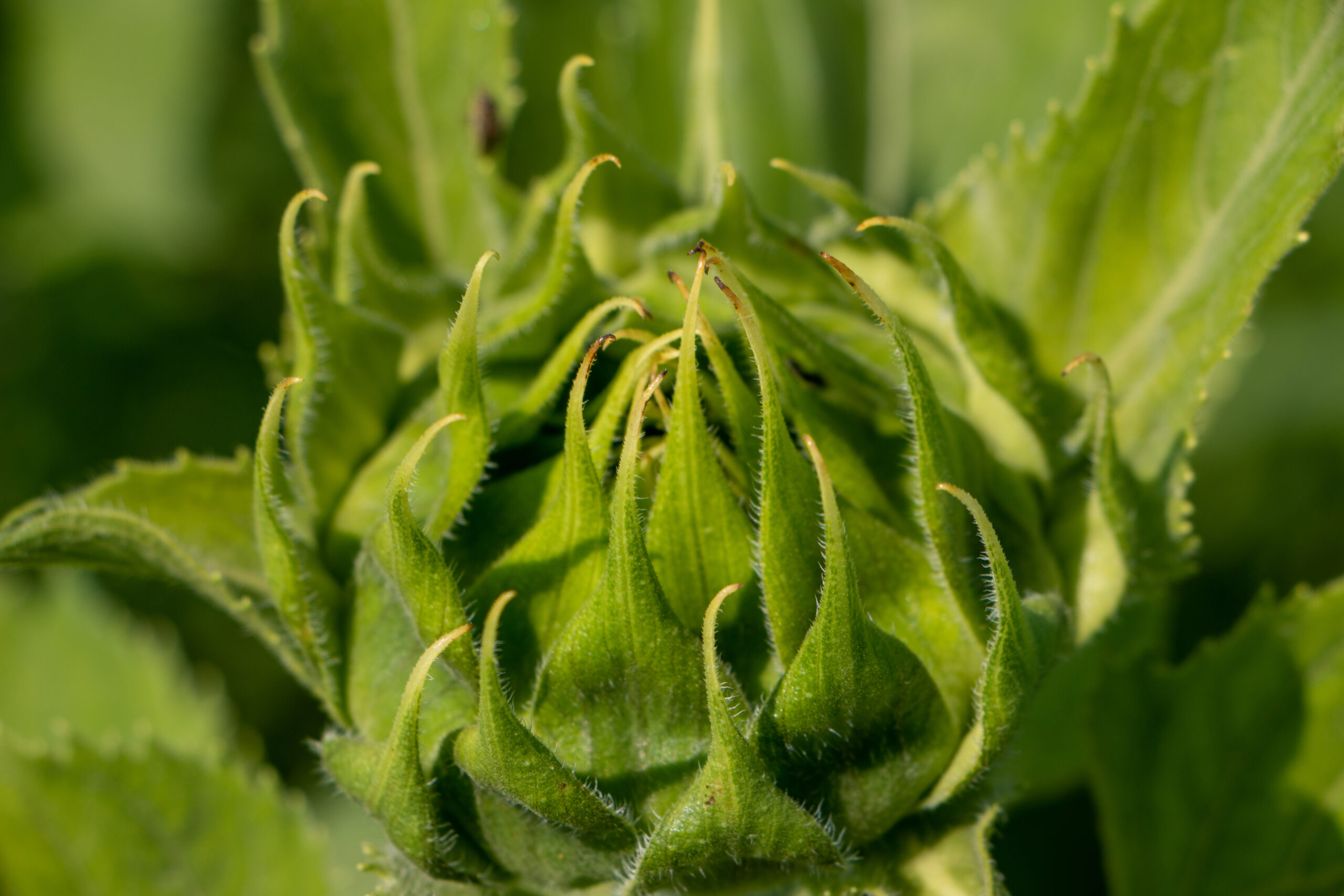Nutrition and Potential Health Benefits of Oats
It’s the grain that’s on nearly everyone’s breakfast rotation – oats! Also known as Avena sativa, oats are widely cultivated in North America and Northern Europe. What is considered the “grain” is actually the edible seed of oat grass. While it’s less popular than wheat and rice around the globe, it is highly prized for its nutrient density and widely enjoyed as a cereal grain. The potential health benefits of oats are plentiful, and in this article we will share why.
Key Nutrients in Oats
Oats are an incredibly nutrient dense grain and among one of the highest dietary sources of manganese, a key mineral critical for metabolism, bone health, and inflammatory balance. One half-cup serving provides twice the recommended daily allowance of this important trace mineral.
Oats are also high in two other bone-strengthening nutrients, phosphorus and magnesium, as well as copper, zinc, iron, vitamin B1 (thiamin), and two forms of vitamin E: tocopherols and tocotrienols.
Interestingly, oats offer a good balance of all three macronutrients, offering essential amino acids (protein building blocks), unsaturated fatty acids, and slow-burning complex carbohydrates. Oats are probably most known and appreciated for their dietary fiber, as they are a great source of a soluble fiber called beta-glucan, which forms a viscous gel in the digestive tract. This kind of fiber has been shown to benefit cardiovascular health, gut health, blood sugar balance, and immune health.
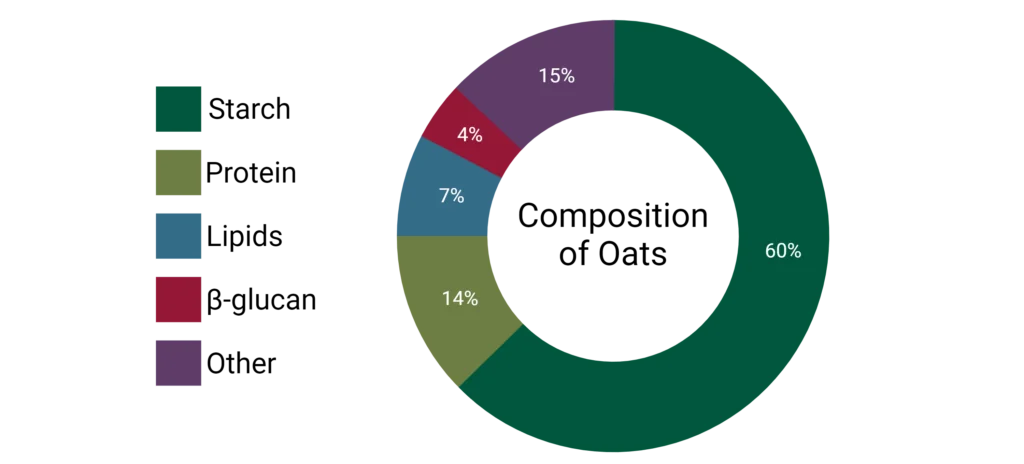
Key Phytonutrients in Oats
In addition to macronutrients, vitamins, and minerals, oats also offer a wide range of antioxidant phytonutrients. More specifically, oats contain a unique type of polyphenol alkaloid called avenanthramide.1 There are about 40 different types of avenanthramides have been found in oat grain and oat leaves, which are not found in other cereal grains. These phytonutrients offer a wide range of specific potential health benefits, including:
- Cardio-protective, as they may prevent low-density lipoprotein (LDL) cholesterol oxidation
- Anti-inflammatory and antioxidant activity
- Cancer-protective and may inhibit cell proliferation
- Protection from skin irritation, soothes itchiness on skin and scalp, and may help prevent lipid peroxidation in human hair follicles
- Detoxification support; may increase glutathione levels
- May enhance nitric oxide production, supporting normal blood pressure2
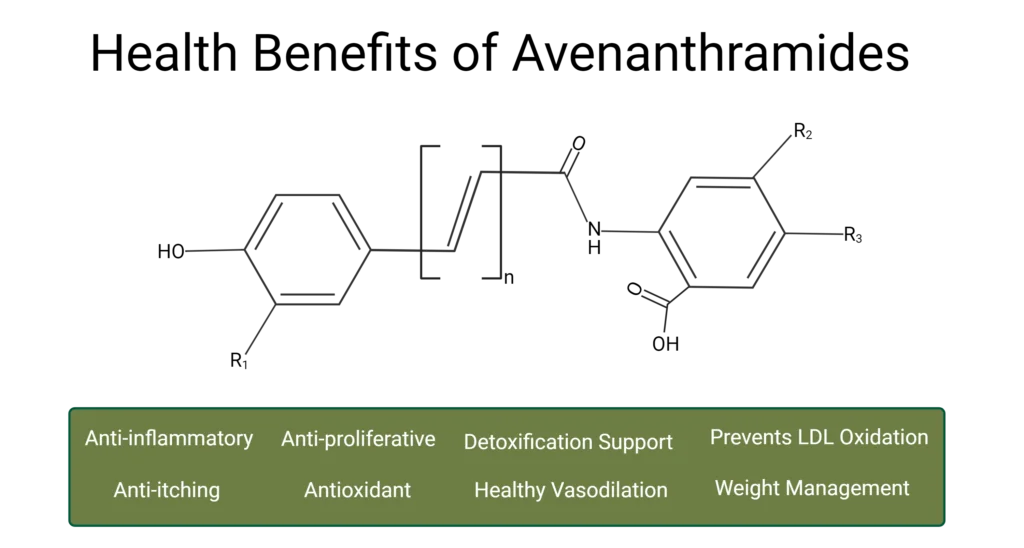
Types of Oats and Their Differences
There are several types of oats, each with a unique nutrient and cooking profile due to differences in processing techniques.
Whole Oats
Whole oats, or oat groats, are the most intact and unprocessed form of oats.
Whole oats contain all three components of a grain- the bran, germ, and endosperm. The bran and germ contain fiber, vitamins, and minerals while the endosperm is the source of carbohydrates and some protein. Because whole oats retain the bran, they are a good source of fiber, especially β-glucans.
Whole oats also contain a good balance of protein, fat, and essential minerals.
The complex structure of whole oats is key to their nutritional benefits; however, it also results in longer cooking time and chewy texture. As such, whole oats are best suited for hearty dishes such as slow-cooked porridge, oat risotto, and salads.
To achieve the best texture when cooking whole oats, use a ratio of 1:2 of oats to liquid. Additionally, adding a dash of salt or toasting oats before cooking can bring out the naturally nutty flavors of oats.
Steel-Cut Oats
Steel-cut oats are a type of whole oat that has been chopped into pieces with steel blades. Steel-cut oats tend to have a coarse texture and nutty flavor. Because of the minimal processing, steel-cut oats retain a very good nutritional profile, similar to whole oats.
Steel-cut oats are ideal for making creamy, textured oatmeal but can also be used in baked goods for added texture. To prepare steel-cut oats, combine 3 cups of boiling water with 1 cup of steel-cut oats and cook for 15 to 20 minutes, or until thickened.
Add healthy toppings such as fresh fruit, coconut flakes, chia seeds, or almonds. Soaking steel-cut oats overnight can help reduce cooking time.
Rolled Oats
Rolled oats, also known as old-fashioned oats, are whole oats that are de-husked and steamed then rolled flat. Commonly found in the breakfast cereal aisle of the grocery store, rolled oats are more processed than whole oats and steel-cut oats, and therefore cook faster. Their nutritional profile is similar to steel-cut oats, except they are lower in fiber due to the extra processing.
Rolled oats are a common pantry choice due to their versatility in cooking. They can be used for classic oatmeal, granola, cookies, and as a thickener in smoothies.
Overnight oats have gained popularity in recent years as a nutritionally packed, convenient breakfast. Overnight oats can be made by combining ½ cup whole rolled oats with 2/3 cup milk of choice, ¼ cup Greek yogurt, a pinch of sea salt, one tablespoon of chia seeds, and complementary add-ins such as pecans, apples, and cinnamons, or bananas, cocoa powder, walnuts, and cinnamon.
Instant Oats
Instant oats are the most processed form of oats. They are pre-cooked, dried, then rolled, and pressed thinner than rolled oats. As the name implies, instant oats cook very quickly, often just by adding hot water.
While instant oats still contain essential nutrients, they also have a higher glycemic index due to their processing, causing a higher rise in blood glucose levels upon consumption. They may also cause a greater spike in blood sugar if they contain added sugars and flavors. Because of this, reading the ingredient list can help in choosing healthier instant oat varieties. Additionally, adding fresh fruits and nuts can provide nutrients like fiber and healthy fats to create a balanced meal.
Ancient Oats
While not commonly seen in supermarket aisles, there are other varieties of oats, such as Avena Strigosa and Avena Fatua that are considered ancient and wild oats, respectively. Ancient oats offer nutritional advantages over current strains, including boasting a better nutritional profile, relatively high protein content, and balanced amino acid composition, and unique phytonutrients.3
The presence of certain phytonutrients can result in a bitter, less palatable taste, but also provide beneficial compounds to the body that are otherwise difficult to obtain from processed foods.
Ancient oats also contain high levels of resistant starch alongside low levels of digestible starch, making them a low glycemic index food.3 As such, ancient oats may provide even more benefits over modern oats for individuals seeking to achieve healthy weight status and/or healthy blood glucose levels.
Many ancient grains, including ancient oats, may have unique growing regions and historical significance. As such, culinary preparation can be used to honor their traditional preparation methods, such as by preparing ancient oats as part of traditional porridges or in artisanal breads.

Potential Health Benefits of Oats
Oats are considered a “super food” by many for their wide range of potential health benefits. Research supporting its role in heart health is so robust that the U.S. Food and Drug Administration (FDA) approved the first food-based health claim stating that the soluble fiber found in oats is associated with a reduced risk for coronary heart disease.3 But the potential benefits don’t stop there. There are even more reasons to love oats, including potential benefits in many areas of health, including the following.
Cardiovascular Health
The fiber found in oats has been found to reduce total cholesterol, LDL cholesterol, and triglycerides, thereby offering cardiovascular health benefits. Soluble fiber forms a viscous gel and binds to cholesterol and bile in the intestines, allowing for more efficient cholesterol elimination through the stool.4
Beta glucan fiber may also affect cholesterol metabolism by modulating the gut microbiota.5 Furthermore, avenanthramide, a unique antioxidant found in oats may enhance nitric oxide production, which would benefit blood pressure, vascular elasticity, and blood vessel function.6
Blood Sugar Balance
Consuming whole grain oats has been found to reduce the risk for type 2 diabetes and improve post-prandial blood sugar balance. The main proposed mechanism for improved glycemic control is the viscous nature of beta glucan fiber, which slows carbohydrate digestion and absorption of glucose. Secondary mechanisms have also been proposed in the literature, including beta glucan’s potential ability to downregulate the expression of glucose transporters.7
Microbiome Balance
Oat β-glucan fiber has been shown to modulate the intestinal microbiota through its prebiotic activity and may increase bacterial strains that positively affect bile acid metabolism and short-chain fatty acid (SCFA) production. These same beneficial strains, including L. reuteri and Akkermansia muciniphilia, are associated with improved gut barrier function.4,5
Gut Health
Oat fiber, mainly soluble beta-glucan fiber, supports regularity and acts as a prebiotic. Some research suggests that the benefits of beta-glucan fiber from oats may extend beyond its viscous binding properties. Oat beta glucan fiber has been shown to modulate the intestinal microbiota through its prebiotic activity and may increase bacterial strains that positively affect bile acid metabolism and short chain fatty acid production.
These same beneficial strains, including L. reuteri and Akkermansia muciniphilia, are associated with improved gut barrier function.8,9
Immune Support
The potential health benefits of oats and beta-glucan fiber has included anti-cancer, anti-inflammatory, and immune-modulating properties. Beta-glucans may be recognized directly by the innate immune system. Several immune cells including neutrophils, macrophages, and dendritic cells express beta-glucan sensitive receptors.10
In addition, gut microbes utilize beta-glucan as a prebiotic, preferentially supporting the beneficial bacteria that produce short chain fatty acids. These actions support immune function via associated gut-related immune function.11-13
Digestive Health
In addition to prebiotic activity, oats promote digestive health by supporting bowel regularity. The fibers in oats increase stool bulk by drawing water into the intestines which promotes regular bowel movements and may help prevent constipation.8 The antioxidant, anti-inflammatory, and SCFA-induced effects of oats can also help maintain a healthy digestive tract.8,9
Weight Management
Finally, oats have been found to be a healthy, functional food for weight management. β-glucans are viscous in nature and draw water into the digestive tract upon consumption. This bulking, hydrating nature helps delay gastric emptying which inhibits food intake and may reduce caloric intake.10
Over time and alongside other weight management strategies, this can help reduce body weight, body fat, and BMI.10 Oat β-glucans also activate the gut-hypothalamic axis to increase satiety.10 Because oats are relatively low in calories yet full of beneficial nutrients, they are a nutrient-dense food option that can aid in weight loss.
With such a wide range of potential health benefits, it’s no wonder oats – a common breakfast staple – has evolved beyond the bowl to become more popular than ever.
WholisticMatters is powered by Standard Process, a nutritional supplement company that’s family-owned and has operated for over 90 years. Standard Process offers many nutritional and whole food-based solutions.
- Meydani M. Potential health benefits of avenanthramides of oats. Nutr Rev. 2009 Dec;67(12):731-5. doi: 10.1111/j.1753-4887.2009.00256.x. PMID: 19941618.
- Nie L, Wise ML, Peterson DM, Meydani M. Avenanthramide, a polyphenol from oats, inhibits vascular smooth muscle cell proliferation and enhances nitric oxide production. Atherosclerosis. 2006 Jun;186(2):260-6. doi: 10.1016/j.atherosclerosis.2005.07.027. Epub 2005 Sep 1. PMID: 16139284.
- https://www.govinfo.gov/content/pkg/FR-1997-01-23/pdf/97-1598.pdf
- Joyce SA, Kamil A, Fleige L, Gahan CGM. The Cholesterol-Lowering Effect of Oats and Oat Beta Glucan: Modes of Action and Potential Role of Bile Acids and the Microbiome. Front Nutr. 2019 Nov 27;6:171. doi: 10.3389/fnut.2019.00171. PMID: 31828074; PMCID: PMC6892284.
- Joyce SA, Kamil A, Fleige L, Gahan CGM. The Cholesterol-Lowering Effect of Oats and Oat Beta Glucan: Modes of Action and Potential Role of Bile Acids and the Microbiome. Front Nutr. 2019;6:171. Published 2019 Nov 27. doi:10.3389/fnut.2019.00171
- Nie L, Wise ML, Peterson DM, Meydani M. Avenanthramide, a polyphenol from oats, inhibits vascular smooth muscle cell proliferation and enhances nitric oxide production. Atherosclerosis. 2006 Jun;186(2):260-6. doi: 10.1016/j.atherosclerosis.2005.07.027. Epub 2005 Sep 1. PMID: 16139284.
- Tosh SM, Bordenave N. Emerging science on benefits of whole grain oat and barley and their soluble dietary fibers for heart health, glycemic response, and gut microbiota. Nutr Rev. 2020 Aug 1;78(Supplement_1):13-20. doi: 10.1093/nutrit/nuz085. PMID: 32728756.
- Joyce SA, Kamil A, Fleige L, Gahan CGM. The Cholesterol-Lowering Effect of Oats and Oat Beta Glucan: Modes of Action and Potential Role of Bile Acids and the Microbiome. Front Nutr. 2019;6:171. Published 2019 Nov 27. doi:10.3389/fnut.2019.00171
- Tosh SM, Bordenave N. Emerging science on benefits of whole grain oat and barley and their soluble dietary fibers for heart health, glycemic response, and gut microbiota. Nutr Rev. 2020 Aug 1;78(Supplement_1):13-20. doi: 10.1093/nutrit/nuz085. PMID: 32728756.
- Goodridge HS, Wolf AJ, Underhill DM. Beta-glucan recognition by the innate immune system. Immunol Rev. 2009 Jul;230(1):38-50. doi: 10.1111/j.1600-065X.2009.00793.x. PMID: 19594628; PMCID: PMC6618291.


